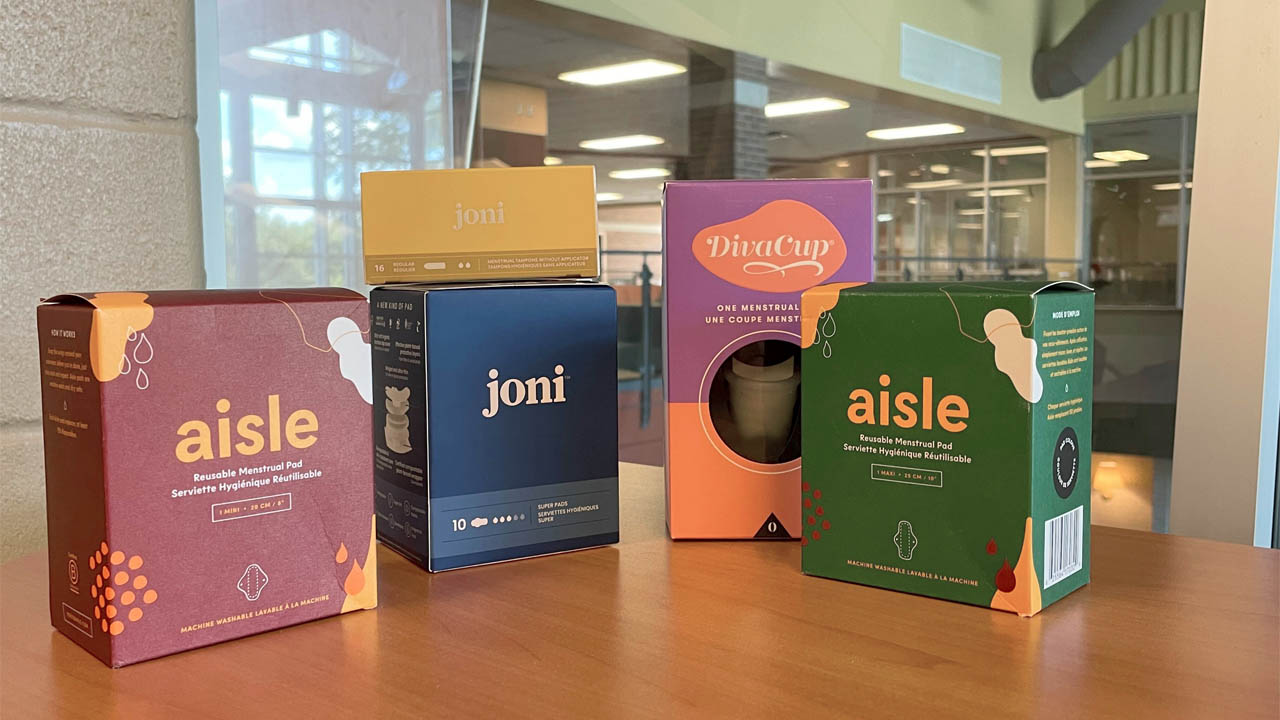Gender-Based Violence Prevention and FSU bring back Period Mail-Outs
 CREDIT: KATE OTTERBEIN
CREDIT: KATE OTTERBEINA general idea of what will be included in the menstrual mail-outs.
Leah Marshall, Fanshawe’s Sexual Violence Prevention Advisor, has collaborated with the Fanshawe Student Union (FSU) once again in an effort to end period poverty on campus.
“The FSU has actually been working to end period poverty for quite a few years now,” said Marshall. “In the student centre washrooms there are free menstrual products available to students, but not found throughout the college. And so Gender-Based Violence Prevention and Education has partnered with the FSU to help get products into the hands of students.”
To do this, Marshall compiled a period mail-out kit, which includes disposable tampons, disposable pads, a reusable menstrual cup, and a reusable menstrual pad. She said the reusable items are to help combat period poverty in the long run, rather than just having disposable products in the kit.
“We started this in COVID as a way to get period products into the hands of students at no cost. Period poverty affects our students because there are times when funds are tight for students and if they have to put those funds towards menstrual products, they might be making a decision of not having that money to put towards food or other things they need.”
Part of Marshall’s quest to fight period poverty was to also include period equity. Most menstrual products are geared towards women, with pink colouring and flowers, stereotypical “girly” things. But it was important to Marshall to include everybody in this box.
“We know that any person can have a period. Part of our push was to also combat transphobia and hopefully open up an understanding that any gender or non-conforming gender identity may need and want access to these products.”
The box includes products from the brand ‘joni,’ which is a Canadian, person-of-colour-owned company. The boxes use gender- neutral colours and not geared towards any one person. They also have a lot of the same ideals that Marshall is promoting and looking for, including sustainability, biodegradable products, and education.
“They’re not just selling period products, they’re doing the education that we’re trying to do on campus around ending period poverty through webinars. How does it disproportionately affect certain groups of people? What does it look like when someone has to make the decision between buying products or putting food on the table or participating in coming to school?”
The partnership with ‘joni’ also includes educational sessions for students at the college.
“That really aligned with our values and the place that we’re coming from.”
The mail-outs will take place twice a semester during the school year. This is a trial phase, to see what kind of response they get. Students interested can watch the FSU’s social media for more.
In addition to the boxes, Marshall will be preparing a kit of condoms, dental dams, and other sexual health products for students to access all year.
















